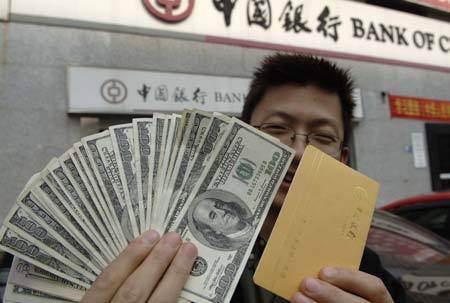VII-7 Question: On February 1, 2007, China adjusted its foreign exchange control policies for individuals. What are the key changes? What is the rational for these changes?
A: To deepen foreign exchange reform and to promote more balanced international payments, the Chinese Government has loosened its currency exchange control on individuals on February 1, 2007. The key changes are:
First, the foreign-exchange-purchasing ceiling for each single domestic or overseas transaction of individual persons has been lifted, which is replaced by an annual ceiling. The annual foreign-exchange-purchasing limit for individuals' domestic transactions has been raised from $20,000 to $50,000.
Second, different policies apply to business and non-business current account foreign exchange transactions. If a person opens a foreign exchange account to do foreign trade, regardless of the volume, their foreign currency transactions are not subject to the annual ceiling as long as foreign trade payment instruments are produced. For other current account foreign exchange transactions that are not trade related, such as endowment, alimony, inheritance, etc., exceptions to the annual ceiling can be made if certified legal documents of endowments or inheritance are provided.
Third, foreign cash and notes are no longer required to be deposited into separate accounts. With personal identification card, any person can open foreign currency account and engage in non-business related transactions. The foreign exchange control agency will no longer implement different policies toward holders of foreign cash or notes.
Fourth, to prevent quota-hiking behaviors by opening multiple accounts, China has set up a management information system linking banks and the State Administration of Foreign Exchange (SAFE). Banks can serve individuals through this system, and verify documents related to transactions. A person can buy or sell foreign currencies in any SAFE approved bank.
The policy adjustments are to facilitate the legal and adequate use of foreign currencies and to balance international payments.
Many countries in the world have control over currency transactions by individuals. Foreign exchange activities of individuals have been a key area of China's foreign exchange control. According to the Anti-Money Laundering Law, China will strengthen its management of foreign currencies in cash, and the measures include:
The daily ceiling for cash deposits of foreign currencies is $5,000, and exceptions can only be granted with permission from relevant government agencies. The daily ceiling for cash withdraw is $10,000, and for larger amounts a person must submit application to foreign exchange control agencies in advance. A person must make a customs declaration or produce a foreign currency withdraw slip from the bank where he/she has opened the foreign currency account if he/she remits $10,000 or more cash abroad within a single day.
Foreign currency transactions of individuals in China will be constantly monitored through the foreign exchange management information system and the annual ceiling will be adjusted accordingly.

(China.org.cn)